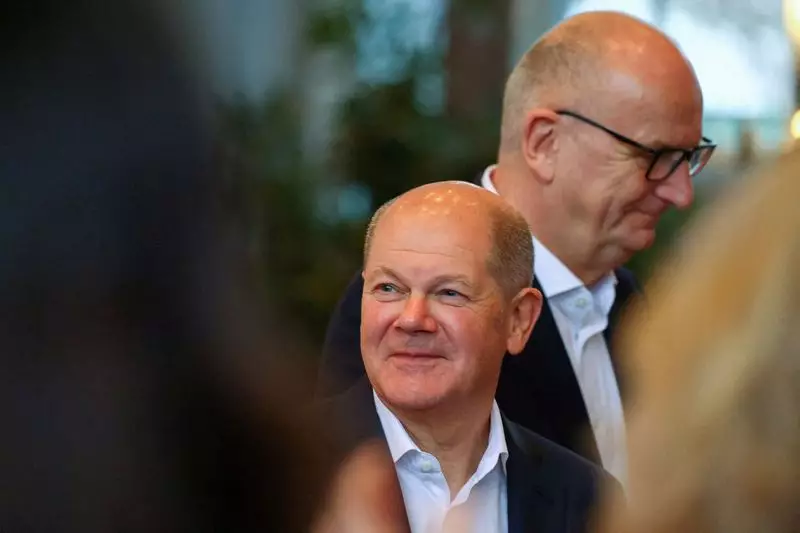Germany is facing a significant political upheaval as Chancellor Olaf Scholz prepares to submit a no-confidence vote to the parliament, a move that signals the potential for accelerated national elections. The recent departure of the Free Democrats has left Scholz’s coalition government teetering and unable to establish a parliamentary majority. This situation is unfolding against the backdrop of an economic crisis that many experts categorize as the most severe the nation has seen in decades. With the potential elections slated for February 23, there are growing debates about the immediate measures that need to be addressed before any new government can be formed.
The collapse of the three-party coalition government comprising Scholz’s Social Democrats, the Greens, and the now-exited Free Democrats leaves a considerable void in Germany’s political landscape. With the departure of the Free Democrats last month, Scholz’s government is left functionally impotent. The urgency of the situation cannot be overstated since Germany is grappling with high inflation rates and energy crises that threaten to destabilize its economy further. The government’s lack of a majority not only complicates governance but also significantly undermines public confidence in the political system’s effectiveness during times of distress.
The significance of this political instability transcends mere governance; it poses a risk of economic ramifications as well. As Scholz attempts to govern as a caretaker, the tightrope he must walk includes addressing critical economic issues while navigating the turbulent political waters that have emerged. The lingering effects of a weakened government often lead to a disconnect between economic management and legislative action, which can ultimately exacerbate the fiscal challenges facing the country.
Germany’s political framework is heavily influenced by historical precedents, particularly by the need for stability lest the country revisit the turbulent periods that allowed the rise of extremist ideologies in the past. The structures put in place to ensure stable governance, such as the elongated process to establish a new government following a no-confidence vote, reflect an awareness of the consequences that can arise from political instability. German President Frank-Walter Steinmeier, despite his largely nominal powers, plays a vital role in navigating this process, including the official dissolution of parliament and the calling of new elections.
The caution with which the political system moves reflects a deep-rooted desire to avoid repeating historical mistakes. However, the tension between preserving democratic stability and addressing pressing economic crises presents a paradox for lawmakers. It remains to be seen whether these challenges will lead to a re-evaluation of existing political practices to better adapt to current realities.
As the potential elections loom, Scholz has outlined various urgent measures that he hopes to pass with cooperation from opposition parties. Among the proposed initiatives are significant tax cuts totaling 11 billion euros and an increase in child benefits, measures already agreed upon by the previous coalition partners. However, while these initiatives might seem promising, the path to their implementation remains fraught with complexity. The political climate is charged, with conservative opposition members, such as Thorsten Frei, indicating readiness to support critical legislation while positioning themselves as the solution to the government’s shortcomings.
Yet, there’s still much uncertainty surrounding other pressing issues, particularly around inflation-related fiscal policies and energy cost mitigation efforts. As debates heat up, political rhetoric has taken on a sharper edge, underscoring how critical these discussions are not only for immediate fiscal relief but also for maintaining electoral support.
As the no-confidence vote approaches, the implications of these political maneuvers are immense. Scholz’s political future hangs in the balance in light of the precarious coalition dynamics and the opposition’s growing momentum in public sentiment. Even if the Social Democrats and Greens manage to maintain a semblance of support for Scholz, the specter of collaboration with fringe parties poses ethical dilemmas that could undermine the fundamental tenets of democratic integrity.
The upcoming weeks will serve as a pivotal period, not just for Olaf Scholz but for Germany as a whole, as it grapples with the intertwining challenges of economic recovery and political stability. The electoral outcomes will shape the national narrative for years to come, re-establishing Germany’s trajectory in both the European context and the global arena. In navigating this complex labyrinth, the importance of unified governance becomes ever clearer, as do the consequences of failing to achieve it in a time of crisis.

